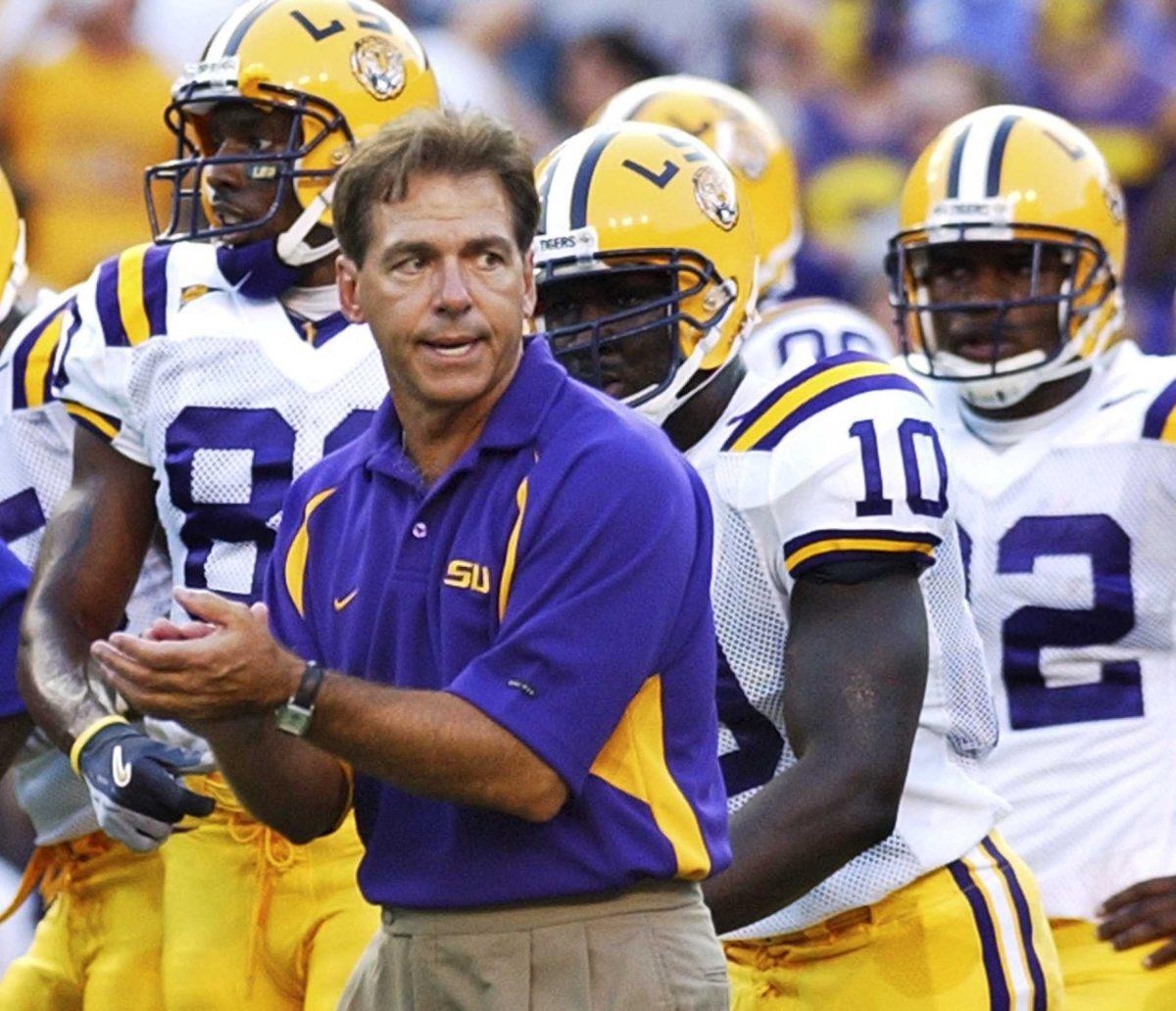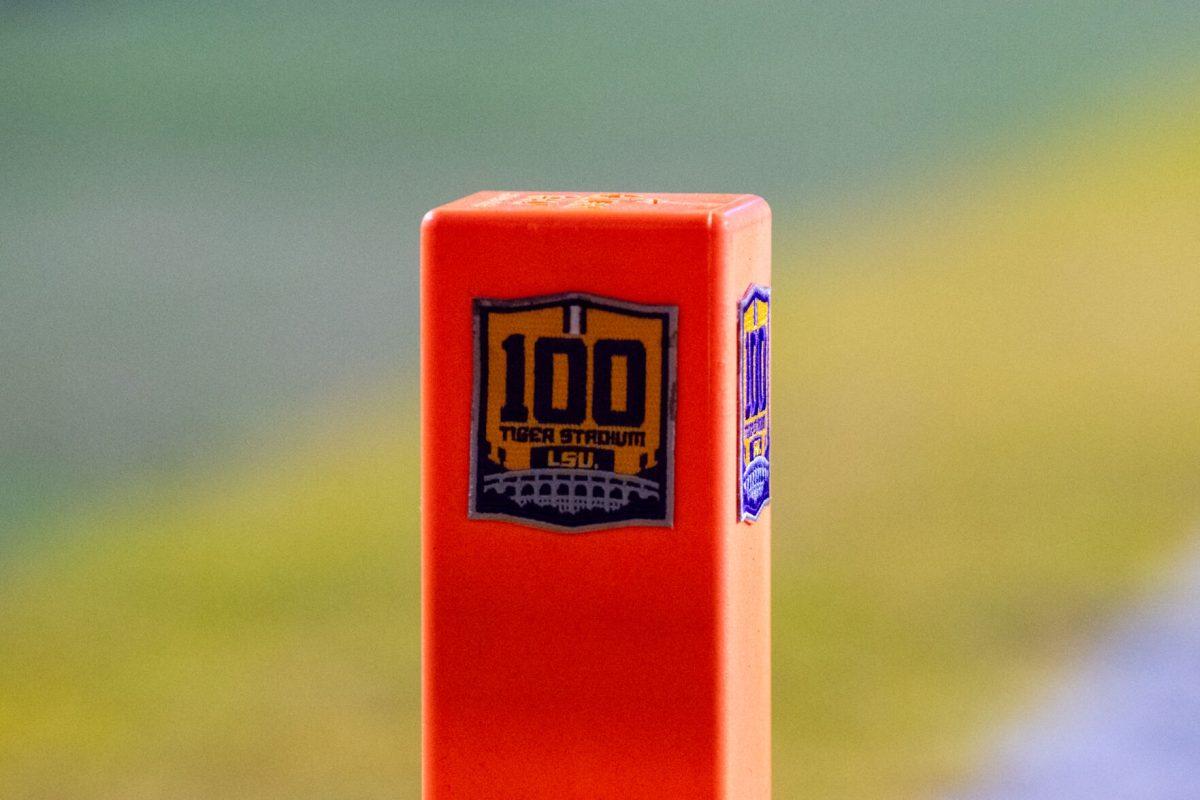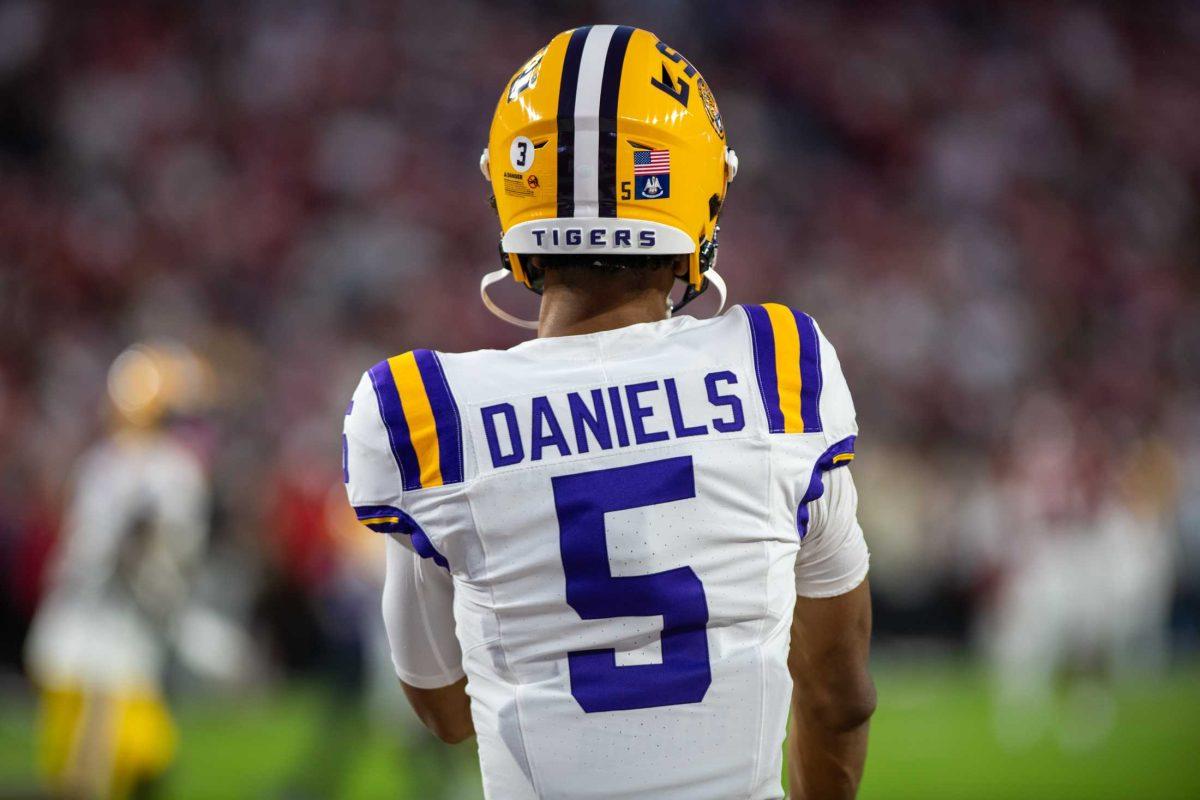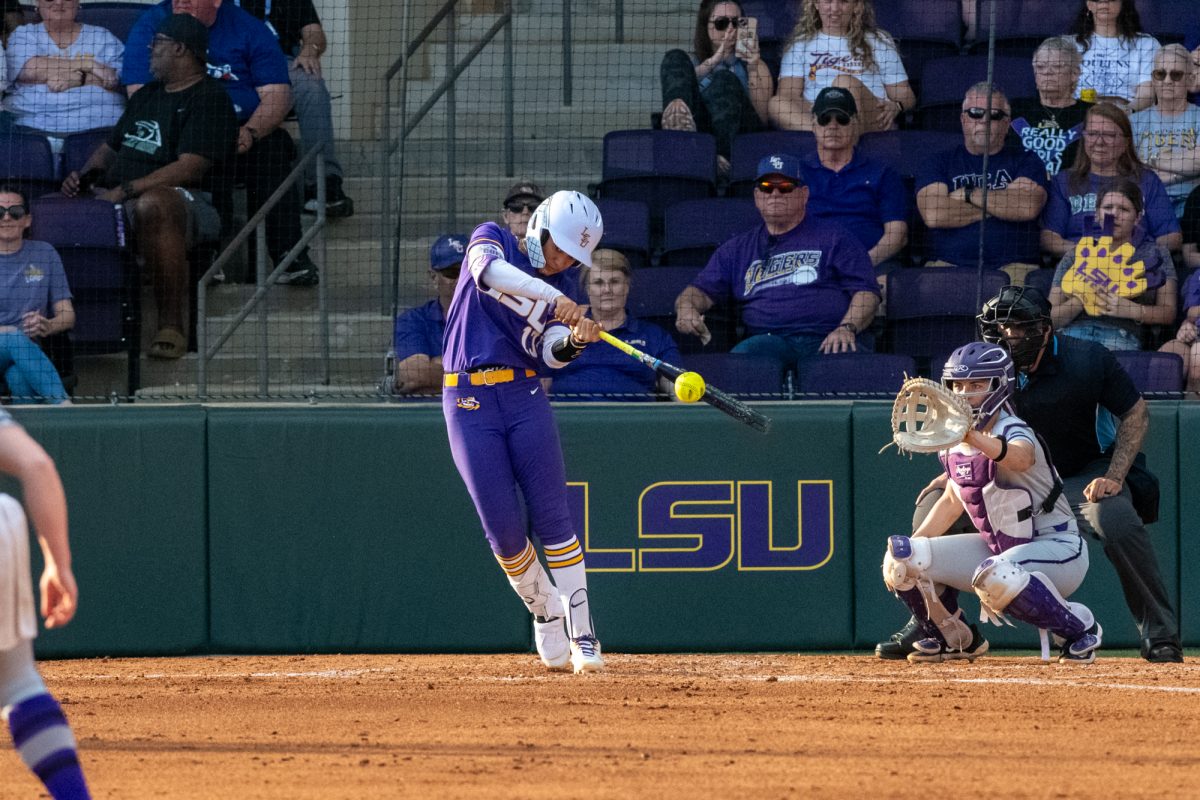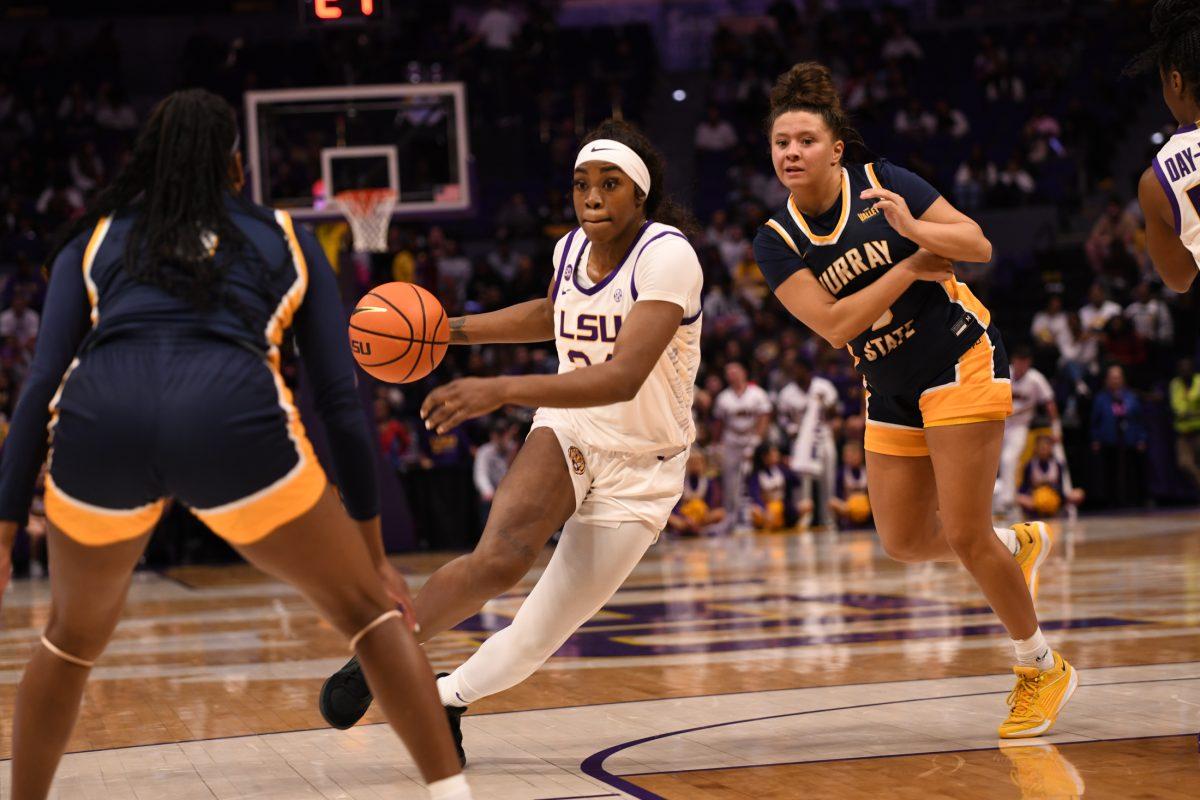“It’s not human nature to be a champion. Human nature is to be average – to do what you have to do to get by. The other guy wants to win too, so you better be at your best and you better have prepared and done everything that you could do every step of the way to be ready for that challenge.”
That’s what Nick Saban told Mike Tyson when the legendary boxer visited Alabama during fall camp in 2019.
“You have to be a champion before you can ever win a championship.”
Coming from a head coach that has won seven national titles since 2003, those words certainly hold merit. Even before he won his first, he had already proven he was capable of greatness. Prior to his time at Alabama, Saban had built Michigan State from a program of obscurity to one that could rival the best the Big Ten had to offer.
He then took on the difficult task of rebuilding LSU, where he immediately foreshadowed the future championships to come. He carried out a multitude of huge wins in his debut season in the SEC, upsetting No. 11 Tennessee and No. 13 Mississippi State on his way to a Peach Bowl victory at the tail end of 2000.
One vital trait of a champion is the ability to overcome adversity no matter what. If you’re down late, you have to be capable of putting yourself in a position to win in the end. If your opponent is rallying, you can bend but you can’t break. And amidst the home stretch of the season when you can’t afford to drop a game, then don’t (unless it’s 2007).
If you can’t manage to conquer difficult situations, expected or unexpected, you won’t be remembered as a champion.
It’s arguable that the Tigers had a team worthy of winning a national title back in 2001, but that didn’t come to light until late in the season, when the prospect was already out the window. Still, the team accomplished what it could, given its 4-3 start, securing back-to-back ranked wins to secure the SEC West title before upsetting Tennessee again to win the SEC championship. He followed that giant win with a two-score victory over the Fighting Illini in the Sugar Bowl.
The Tigers took a step back in 2002, starting 6-1 and No. 10 in the country before dropping four of their last six to finish 8-5. Their unranked loss to Florida midway through the 2003 season didn’t do them any favors in their pursuit of their first national title in 45 years. That’s when the championship mentality preached earlier kicked in.
Headlined by the best defense in the country, LSU’s next four games were a breath of fresh air for Tiger fans everywhere. It gave up a total of 27 points through its next four games, including a 31-7 victory over No. 17 Auburn and a near-shutout of Alabama. Those wins propelled the Tigers to No. 3 in the polls, making it apparent that they were very much in the running for the national title.
Hindsight is 20/20, so when looking back at their last three games heading into the Sugar Bowl that would eventually have them named national champions, one game sticks out like a sore thumb. Though LSU’s three-score victory over No. 5 Georgia was important in securing its championship matchup with Oklahoma, it would have meant next-to-nothing if the Tigers had faltered on the road in the 2003 Magnolia Bowl.
While LSU possessed the best defense in the country, the University of Mississippi had the best offense in the conference to rival it, led by eventual two-time Super Bowl champion Eli Manning at quarterback. Manning had already won once in his debut matchup against the Tigers in 2001, and nearly did the same in 2002 before a Corey Webster interception halted the Rebels’ potential game-winning drive.
His senior season in 2003 was the best in terms of both yardage and efficiency, which in turn resulted in Ole Miss’ best record through 10 games since 1990 (8-2). The Rebels came into their matchup with No. 3 LSU sporting a six-game win streak, which included two ranked wins and three games decided by one score. A win here would propel the No. 15 team in the country into the top 10 and a near-guaranteed spot in the SEC Championship.
The game itself did an accurate job of representing two teams battling for a division title.
Ole Miss would strike first when defensive back Travis Johnson took a pass from LSU quarterback Matt Mauck back for a score less than one minute into the game. The Tigers would respond with a long drive capped by Chris Jackson’s field goal and for a while, each defense would hold firm.
The score sat at 7-3 Ole Miss for a quarter-and-a-half before the Mauck-led offense was able to punch it in close to halftime to take its first lead of the game at 10-7. The next score would come on the first play of the fourth quarter when Mauck found receiver Devery Henderson streaking down the sideline for a 54-yard touchdown, extending the Tiger’s lead to 17-7.
Up to this point, the Ole Miss offense had found practically zero success, with one drive up to this point producing more than 20 yards. It was its defense alone that had kept them in this game, picking off Mauck three times along with stagnating most of LSU’s drive. But at this time in the game, down by 10 points, the defense wasn’t going to be able to bail them out.
And after an LSU penalty helped the Rebels convert their first third-down of the drive, they would be faced with a familiar situation experienced throughout the game: a third-down and long. Manning, who had struggled all night, finally found daylight, completing a 43-yard bomb down the sideline to Rebel receiver Bill Flowers to put them in a great position to score.
With the momentum on their side, they would punch it in just four plays later, with Manning completing a pass off his back foot to running back Brandon Jacobs in the middle of the field, coming on third-and-goal no less.
A quick stop and another successful drive headlined by another deep connection between Manning and Flowers, and Ole Miss was in a position to take the lead. The LSU defense that had held firm all night was bending, but would it break?
No.
The Tigers held Ole Miss to a field goal after forcing a Manning incompletion on third down, and much to the dismay of Rebel fans everywhere, Jonathan Nichols kick from 36 yards away would hook to the right. The Rebels would have one more chance at pulling off the upset though, getting the ball back with just over two minutes remaining after forcing an LSU three-and-out.
A deep pass on second down and 10 appeared to be what would put them in position to win, but LSU defensive back Jack Hunt would dislodge it from Rebel receiver Mike Espy’s grasp, landing the Rebels in a difficult third-and-long situation. The Tigers would force another incompletion on third down before bringing the heat on fourth, which caused Manning to trip over his linemen and give the ball back to LSU, who would finally ice the game.
If the defense doesn’t hold firm in that situation, there’s a chance Nick Saban’s first national title, along with LSU’s first in 45 years, gets erased from the history books. Each team displayed its championship mentality at different times in the fourth quarter, but fortunately for the Tigers, they demonstrated it at the best possible time.



